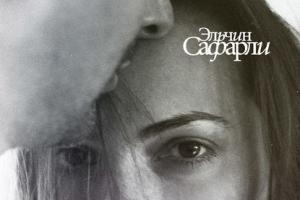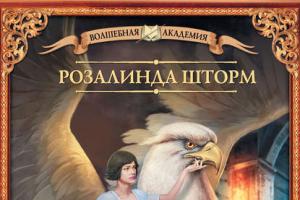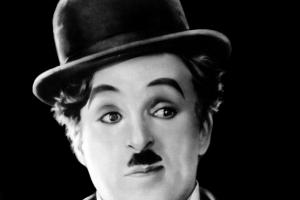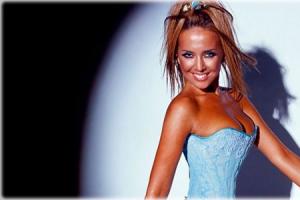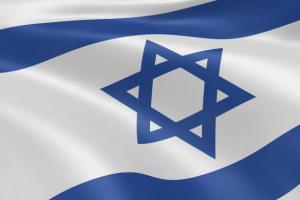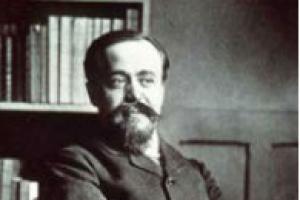”, which became a symbol of the extreme detachment of the supreme absolutist power from the real problems of the common people. Has a complicated origin. According to the most common version, it belongs to Marie Antoinette, although the chronological comparison of the queen’s biographical data does not correspond to either the date of appearance of the phrase or its content.
History of the phrase
This phrase was first mentioned by Jean-Jacques Rousseau in Confessions (1766-1770). However, not quite in the form in which they are accustomed to quoting it. According to Rousseau, this phrase was uttered by a young French princess, whom popular rumor, as well as many historians, later identified with Marie Antoinette (1755-1793):
How to make bread?<…>I would never have decided to buy it myself. For an important gentleman, with a sword, to go to the baker to buy a piece of bread - how is this possible! Finally I remembered what a solution one princess came up with; when she was informed that the peasants had no bread, she replied: “Let them eat brioche,” and I began to buy brioche. But how many difficulties are there to arrange this! Leaving the house alone with this intention, I sometimes ran around the whole city, passing at least thirty pastry shops, before entering any of them.
Jean-Jacques Rousseau. "Confession".
Chronologically, the problem is that Marie Antoinette at that time (according to records - 1769) was still an unmarried princess and lived in her native Austria. She arrived in France only in 1770. As mentioned above, Rousseau did not indicate a specific name in his work. Despite the current popularity of the phrase, it was practically not used during the French Revolution. [ ]
The attribution of the phrase is also indicated by the fact that Marie Antoinette herself was involved in charity work and was sympathetic to the poor, and therefore this expression did not correspond to her character [ ] . At the same time, she loved a beautiful, extravagant life, which led to the depletion of the royal treasury, for which the queen received the nickname “Madame Scarcity.”
Some sources attribute the authorship of the aphorism to another French queen, Maria Theresa, who pronounced it a hundred years before the wife of Louis XVI. In particular, the Count of Provence, who was not noticed in the ranks of zealous defenders of the honor of Marie Antoinette, speaks about this in his memoirs. Other 18th-century memoirists name the daughters of Louis XV (Madame Sophia or Madame Victoria) as the authors.
There is also an opinion that this phrase is misinterpreted, not knowing the trading traditions of those years. By law, merchants were required to sell expensive baked goods (in this case brioche) for the same price as regular bread if there was a shortage. Many refused to do this due to obvious losses, but the fact remains: if there was no bread, bakeries had to provide baked goods for sale for the same money. So the phrase, which has become legendary, is perhaps not at all a symbol of the soulless cruelty of French absolutism [ ] .
Modern usage
This phrase is often used in modern media. Thus, American radio stations during the economic crisis of 2008-2009 played recordings in which they talked about tips for citizens on saving money, among which were a trip to Hawaii once a year for 7 days instead of twice for three or four days; a call to fill up with gasoline at night, when it is denser, and so on. In response, radio listeners began sending angry responses that many Americans had long been unable to afford a vacation at all, or had had their cars or even their homes taken away for debt, calling the radio station’s advice the modern equivalent of the phrase “cakes.”
In his notebooks, the Soviet writer L. Panteleev noted:
Marie Antoinette was accused of authoring the mocking phrase:
- If the people don’t have bread, let them eat cake.
But the author of this phrase is the people themselves. In the Novgorod village they say:
“There won’t be any bread, so we’ll eat gingerbread.”
And further:
- What do we need bread for - if only we had pies.
“If there is no bread, let them eat cake,” Marie Antoinette exclaimed frivolously, demonstrating complete ignorance of the need in which the people lived. And she paid for it with her life.
However, the last queen of France did not utter the famous aphorism; it was attributed to her. Jean-Jacques Rousseau, who mentioned the episode in his “Confession,” can safely be considered a participant in the information war of that time.
« Marie Antoinette with her hand resting on the globe" (fragment), court artist Jean-Baptiste-André Gautier-Dagoty.
The French did not like the Austrian Marie Antoinette. Crude jokes were told about her and it was believed that the foreigner was indifferent to the local population, did not know about the starving peasants and kept the king under his thumb. In particular, they said that it was precisely her that the forerunner of the Great French Revolution, Jean-Jacques Rousseau, had in mind when he wrote in his “Confessions” (1776 - 1770) about a certain princess who, in response to the remark that the people do not have bread, indifferently said: “Qu'ils mangent de la brioche” (Let them eat brioche).
Brioche is bread made from expensive flour. The replacement with cakes occurred later and not in France, but when the aphorism spread throughout the world.
Researchers of the phrase come to the conclusion that Marie Antoinette could hardly have been its author. If only because Rousseau made his entry a couple of years before 1770, when the Austrian princess came to Paris to get married and ascend to the French throne.
In addition, Marie Antoinette herself was involved in charity work and was sympathetic to the poor. So the expression was somewhat inconsistent with her character.
But, as you know, the weapon of information wars is not the truth at all, but a plausible lie.
In February 1917, someone skillfully started a rumor about a catastrophic shortage of bread in Petrograd, which never happened - the interruptions were caused by disruption of the freight transportation schedule due to snow drifts. Bread riots that occurred in empty space, led to the abdication of the king from the throne.
Because of the rumor about Yanukovych’s golden toilet, a gullible and stupid crowd tore their own country to smithereens. But the toilet was never found.
Americans confidently told the world about weapons mass destruction in Iraq, and the world ceases to object to tearing a foreign country to smithereens. And again the search main reason the incursions prove futile.
There were also many rumors during the French Revolution. And one of them was supposed to turn the people against the queen, so that the young woman would be beheaded beautiful woman was perceived as fair retribution, and not as too cruel a punishment for sins, moreover, not committed. Not as a legalized murder, which, in fact, was what this execution was.
But in the case of the aphorism about expensive brioche instead of cheap bread, everything is even worse and more indecent. For if Marie Antoinette had even said so, it would have testified, rather, to her concern for the hungry, and not at all to the carelessness of a depraved queen who was far from the people. And that's why.
Jean-Jacques Rousseau, unlike the mad crowd, could not help but know that the law of the time ordered French bakers to sell brioche at the price of bread when it ran out. And it was aimed specifically against food riots, since bakers preferred to bake expensive brioche in order to make more profit.
There is no frivolity in the phrase “Qu’ils mangent de la brioche” - it contains the bewilderment of a legally literate person who is well acquainted with the problem. Its real meaning can be formulated as follows: “Why don’t people buy brioche when they run out of bread? No one should go hungry, because we have passed a special law to force clever bakers to bake enough bread."
Unfortunately, no one is interested in the truth during a blood-stirring uprising, be it the Great French Revolution, the Great October Revolution or the Maidan. Information wars of the 18th century differ little from modern ones.
Of course, I have not listed all the information wars that humanity has waged in its history - I forgot about some, I don’t know about others.
Can you remind me?

Still life with brioche.
") is a French phrase that has become a symbol of monarchs’ detachment from the problems of the people. Attributed to Marie Antoinette, although first mentioned by Rousseau and may have been invented by him.
History of the phrase
This phrase was first mentioned by Jean-Jacques Rousseau in Confessions (1766-1770). However, not quite in the form in which they are accustomed to quoting it. According to Rousseau, this phrase was uttered by a young French princess, whom popular rumor, as well as many historians, later identified with Marie Antoinette (1755-1793):
How to make bread?<…>I would never have decided to buy it myself. For an important gentleman, with a sword, to go to the baker to buy a piece of bread - how is this possible! Finally I remembered what a solution one princess came up with; when she was informed that the peasants had no bread, she replied: “Let them eat brioche,” and I began to buy brioche. But how many difficulties are there to arrange this! Leaving the house alone with this intention, I sometimes ran around the whole city, passing at least thirty pastry shops, before entering any of them.
- Jean-Jacques Rousseau. "Confession".
Chronologically, the problem is that Marie Antoinette at that time (according to records - 1769) was still an unmarried princess and lived in her native Austria. She arrived in France only in 1770. As mentioned above, Rousseau did not indicate a specific name in his work. Despite the phrase's current popularity, it was practically not used during the French Revolution. Apparently, Rousseau himself came up with the apt phrase, since he and many other French people really wanted to believe that it was actually said by the queen, who had become hated by everyone on the eve of the revolution. [ ]
Some sources attribute the authorship of the aphorism to another French queen, Maria Theresa, who pronounced it a hundred years before the wife of Louis XVI. In particular, the Count of Provence, who was not noticed in the ranks of zealous defenders of the honor of Marie Antoinette, speaks about this in his memoirs. Other memoirists of the 18th century name the daughters of Louis XV (Madame Sophia or Madame Victoria) as the authors.
Modern usage
This phrase is often used in modern media. Thus, American radio stations during the economic crisis of 2008-2009 played recordings in which they talked about tips for citizens on saving money, among which were a trip to Hawaii once a year for 7 days instead of twice for three or four days; a call to fill up with gasoline at night, when it is more dense, and so on. In response, radio listeners began sending angry responses that many Americans had long been unable to afford a vacation at all, or had had their car or even their home taken away for debt, calling the radio station’s advice the modern equivalent of the phrase “cakes” [ ] .
In his notebooks, the Soviet writer L. Panteleev noted:
Marie Antoinette was accused of authoring the mocking phrase:
- If the people don’t have bread, let them eat cake.
But the author of this phrase is the people themselves. In the Novgorod village they say:
“There won’t be any bread, so we’ll eat gingerbread.”
And further:
- What do we need bread for - if only we had pies.
In 2017, Speaker of the Russian Federation Council Valentina Matvienko suggested that students give up dormitories and buy inexpensive apartment: “Let it be 50 square meters, but it's a good start." At the same time, she emphasized that the purchase of housing should be carried out by local authorities and transferred to those in need for a small fraction of the cost
Plan
Introduction
1 History of the phrase
2 Modern usage
3 At the movies
Introduction
“If they don’t have bread, let them eat cake!” - Russian translation of the legendary French phrase: “Qu’ils mangent de la brioche”, lit. “Let them eat brioche,” which became a symbol of the extreme detachment of the supreme absolutist power from the real problems of the common people. Has a complicated origin. According to the most common version, it belongs to Marie Antoinette, although the chronological comparison of the queen’s biographical data does not correspond to either the date of appearance of the phrase or its content.
1. History of the phrase
This phrase was first recorded by Jean-Jacques Rousseau in his historical book “Confessions” (1766-1770). According to Rousseau, it was uttered by a young French princess, who was later identified by popular rumor, as well as by many historians, with Marie Antoinette (1755-1792).
Having been notified of famine among the French peasants, the queen allegedly responded literally as follows: “If they don’t have bread, then let them eat brioche (cakes)!” Chronologically, the problem is that Marie Antoinette at that time (according to records - 1769) was still an unmarried princess and lived in her native Austria. She arrived in France only in 1770. As mentioned above, Rousseau did not indicate a specific name in his work. Despite the current popularity of the phrase, it was practically not used during the French Revolution. Apparently, Rousseau himself came up with the apt phrase, since he and many other French people really wanted to believe that it was actually said by the queen, who had become hated by everyone on the eve of the revolution.
A certain “attribution” of the phrase is also indicated by the fact that Marie Antoinette herself was involved in charity work and was sympathetic to the poor, and therefore this expression was somewhat inconsistent with her character. At the same time, she loved a beautiful, extravagant life, which led to the depletion of the royal treasury, for which the queen received the nickname “Madame Scarcity.”
Some sources attribute the authorship of the aphorism to another French queen, who uttered it a hundred years before the wife of Louis XVI. In particular, the Count of Provence, who was not noticed in the ranks of zealous defenders of the honor of Marie Antoinette, speaks about this in his memoirs. Other memoirists of the 18th century name the daughters of Louis XV (Madame Sophia or Madame Victoria) as the authors.
2. Modern usage
This phrase is often used in modern media. Thus, American radio stations during the economic crisis of 2008-2009 played recordings in which they talked about tips for citizens on saving money, among which were a trip to Hawaii once a year for 7 days instead of twice for three or four days; a call to fill up with gasoline at night, when it is denser, etc. In response, radio listeners began sending angry responses that many Americans had long been unable to afford a vacation at all, or had had their cars or even their homes taken away for debt, calling the radio station’s advice the modern equivalent of the phrase “cakes.”
Also, the phrase about cakes was used several times to describe the dubious relevance of Latin American TV series in which the life of luxurious haciendas is filled with various love passions, despite the fact that the bulk of the population of Latin American countries does not even have a sewer at home.
· Marie Antoinette (film, 2006)
1. Marie Antoinette: let them eat cake! | Interesting world
2. Fraser A. Marie Antoinette. Life path.. - M: Guardian, 2007. - 182-183 p.
3. why superficially about as representative of the country as a whole as Marie Antoinette and her shepherde
Introduction
“If they don’t have bread, let them eat cake!” - Russian translation of the legendary French phrase: “Qu’ils mangent de la brioche”, lit. “Let them eat brioche,” which became a symbol of the extreme detachment of the supreme absolutist power from the real problems of the common people. Has a complicated origin. According to the most common version, it belongs to Marie Antoinette, although the chronological comparison of the queen’s biographical data does not correspond to either the date of appearance of the phrase or its content.
1. History of the phrase
This phrase was first recorded by Jean-Jacques Rousseau in his historical book “Confessions” (1766-1770). According to Rousseau, it was uttered by a young French princess, who was later identified by popular rumor, as well as by many historians, with Marie Antoinette (1755-1792).
Having been notified of famine among the French peasants, the queen allegedly responded literally as follows: “If they don’t have bread, then let them eat brioche (cakes)!” Chronologically, the problem is that Marie Antoinette at that time (according to records - 1769) was still an unmarried princess and lived in her native Austria. She arrived in France only in 1770. As mentioned above, Rousseau did not indicate a specific name in his work. Despite the current popularity of the phrase, it was practically not used during the French Revolution. Apparently, Rousseau himself came up with the apt phrase, since he and many other French people really wanted to believe that it was actually said by the queen, who had become hated by everyone on the eve of the revolution.
A certain “attribution” of the phrase is also indicated by the fact that Marie Antoinette herself was involved in charity work and was sympathetic to the poor, and therefore this expression was somewhat inconsistent with her character. At the same time, she loved a beautiful, extravagant life, which led to the depletion of the royal treasury, for which the queen received the nickname “Madame Scarcity.”
Some sources attribute the authorship of the aphorism to another French queen, who uttered it a hundred years before the wife of Louis XVI. In particular, the Count of Provence, who was not noticed in the ranks of zealous defenders of the honor of Marie Antoinette, speaks about this in his memoirs. Other memoirists of the 18th century name the daughters of Louis XV (Madame Sophia or Madame Victoria) as the authors.
2. Modern usage
This phrase is often used in modern media. Thus, American radio stations during the economic crisis of 2008-2009 played recordings in which they talked about tips for citizens on saving money, among which were a trip to Hawaii once a year for 7 days instead of twice for three or four days; a call to fill up with gasoline at night, when it is denser, etc. In response, radio listeners began sending angry responses that many Americans had long been unable to afford a vacation at all, or had had their cars or even their homes taken away for debt, calling the radio station’s advice the modern equivalent of the phrase “cakes.”
Also, the phrase about cakes was used several times to describe the dubious relevance of Latin American TV series in which the life of luxurious haciendas is filled with various love passions, despite the fact that the bulk of the population of Latin American countries does not even have a sewer at home.
3. At the movies
Marie Antoinette (film, 2006)
Marie Antoinette: Let them eat cake! | Interesting world
Fraser A. Marie Antoinette. Life path.. - M: Guardian, 2007. - 182-183 p.
why superficially about as representative of the country as a whole as Marie Antoinette and her shepherde
Source: http://ru.wikipedia.org/wiki/If_they_don’t_bread,_let them_eat_cakes!



